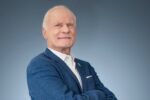Top-line growth continued for U.S. hotels in July 2018, but flow through didn’t keep up, according to the latest data on full-service hotels from HotStats. Despite a 1.1 percent year-on-year increase in RevPAR, profit per room at hotels in the United States dropped 2.2 percent in July due to declining non-rooms revenues and rising costs.
Profit per room at full-service hotels in the United States dropped to $82.23 in July, almost 24 percent below the $101.92 GOPPAR recorded for year-to-date 2018. This was only the second month since the beginning of 2018 that year-on-year profit per room fell in what has been a positive period of performance.
While U.S. full-service hotels successfully recorded an increase in rooms revenue, a decline was recorded in non-rooms revenues, including food and beverage (down 2.3 percent) and conference and banqueting (down 3.5 percent) on a per-available-room basis.
Despite the decline in ancillary revenues, U.S. hotels successfully recorded a 0.4 percent increase in TrevPAR to $236.65, which contributed to the 2.8 percent increase in total revenue for year-to-date 2018, and represented a tenth consecutive month of year-on-year growth in this measure.
However, rising costs, which included a 0.9 percentage-point increase in labor to 36.5 percent of total revenue, as well as a 0.4 percentage-point uplift in overheads to 24.4 percent of total revenue, impeded growth in total revenue. As a result of the movement in revenue and costs, profit conversion at these properties slumped to 34.7 percent of total revenue—well below the year-to-date average of 38.5 percent of total revenue.
While there are some signs of a summer slump, room occupancy levels remained relatively buoyant, at 80.4 percent, in spite of a 0.9 percentage-point decline. The strength of demand enabled hoteliers to leverage achieved average room rate to record a 2.2 percent year-on-year increase to $198.47, which contributed to its ongoing upward trajectory.
In contrast to recent months, in which average room rate has been driven by the commercial segment, the growth in July was fueled by the leisure segment, which included an increase in individual leisure (up 9.2 percent), as well as group leisure (up 15.4 percent) segments, but was also supported by a 22.1 percent increase in rate in the corporate segment to $194.52.
“Achieved average room rate has been the mainstay for U.S. hoteliers in recent years with year-on-year growth recorded in every month since September 2017, suggesting it has been a very positive period of trading,” says Pablo Alonso, CEO of HotStats. “However, more regularly, the growth in rate has not been sufficient to outpace a drop in room occupancy or falling ancillary revenues as well as rising costs. The performance this month provides further evidence that it is key for hotel owners, operators, and investors to look beyond RevPAR to understand the true performance of hotels.”
Profit & Loss Key Performance Indicators for U.S. Hotels
July 2018 vs. July 2017
RevPAR: up 1.1 percent to $159.63
TRevPAR: up 0.4 percent to $236.65
Payroll: up 0.9 points to 36.5 percent
GOPPAR: down 2.2 percent to $82.23











